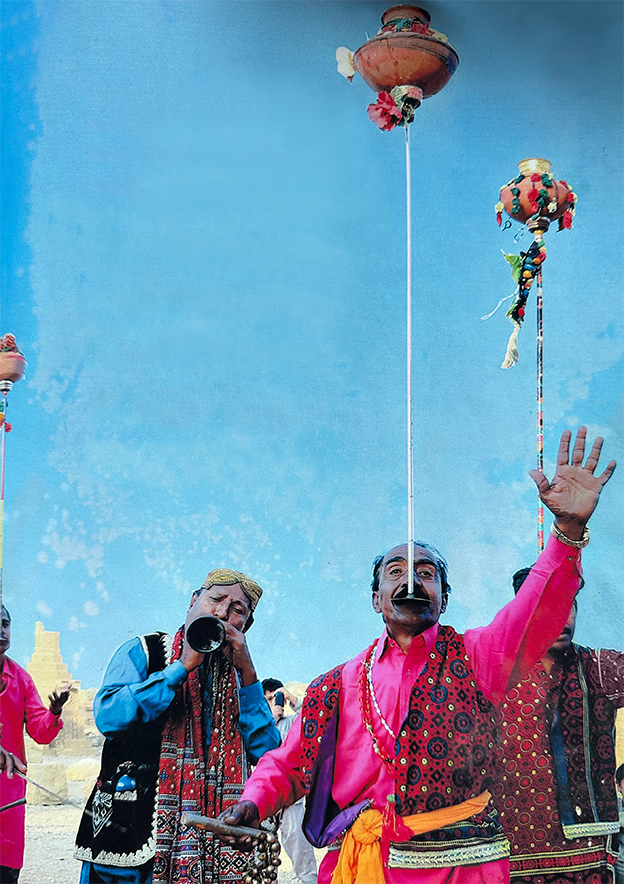ISLAMABAD: Pakistan’s economy can sustainably grow only if the South Asian country introduces productivity-enhancing reforms that facilitate a better allocation of resources and talent, the World Bank said on Friday, amid a spiraling economic crisis that has raised fears of a default.
The report, titled “From Swimming in Sand to High and Sustainable Growth,” found that Pakistan’s inability to allocate all its talent and resources to the most productive uses had stunted economic growth. It presented evidence of systematic productivity stagnation across firms and farms. In manufacturing and services, most of the productivity stagnation is related to firms losing efficiency over time.
The report also showed a systematic decline in agricultural productivity as well as a strong link between elevated temperatures and rainfall variations, presenting a roadmap to reduce distortions in the economy that are currently acting as a deterrent to productivity growth.
“Pakistan’s economy is at a critical stage. It could be a turning point where long-term structural imbalances that have prevented sustainable growth for too long ought to be addressed urgently. The report puts forward a series of policy recommendations to achieve this in a sequenced way,” said Gonzalo J. Varela, a senior economist who co-authored the report.
“First, reduce distortions that misallocate resources and talent. Second, support growth of firms through smart interventions, rather than through blanket subsidies. Third, create a positive, dynamic loop between evidence and policymaking, strengthening feasibility analysis of publicly funded projects or programs.”
Critical reforms suggested by the World Bank to uplift the South Asian country include harmonizing direct taxes across sectors so that more resources flow into dynamic tradable sectors like manufacturing and tradable services, instead of real estate and non-tradables, reducing the anti-export bias of trade policy by lowering import duties, and reversing the anti-diversification bias of export incentives.
The report said productivity was further affected by the fact that Pakistan did not tap into all of its talent.
“Women in Pakistan have made progress in educational attainment, but this accumulated human capital is underused because of constraints they face to participate in the labor force,” said Najy Benhassine, the World Bank country director for Pakistan.
“With only 22 percent of women employed in Pakistan, women’s labor force participation is among the lowest in the world. By closing the female employment gap relative to its peers, Pakistan can accrue GDP gains of up to 23 percent. Successful implementation of policies to address the demand- and supply-side barriers to female labor force participation, can create about 7.3 million new jobs for women.”
Pakistan, which has been grappling with dwindling forex reserves, more than 27 percent inflation and fast depreciating currency, is in dire need of external financing to avoid a default on its international obligations.
The $350-billion economy is still reeling from devastating floods last year, and the government estimates rebuilding efforts will cost $16 billion. The heavily indebted nation only has enough foreign reserves to cover less than three weeks of crucial imports, while analysts believe the longer it takes to secure a $1.1 billion bailout from the International Monetary Fund (IMF), the higher the risk of default.
The World Bank urged Pakistan to maximize positive impact on businesses and productivity across the board by reducing regulatory complexity, harmonizing the general sales tax across provinces, reforming investment laws to attract more foreign direct investment, and upgrading insolvency laws to reduce the costs of liquidating non-viable firms.
In the meantime, it said, providing safe and affordable mobility especially for women, boosting digital connectivity and digitally enabled jobs, demonstrating the benefits of increased female labor force participation to positively shift entrenched norms, developing skills, and reducing sectoral gender bias were among the top and medium-term recommendations for the South Asian country.
“Firms in Pakistan struggle to grow large as they grow old. A young formal firm in Pakistan that has been in operation for 10 to 15 years is about the same size as a firm that has been in operation for more than 40 years,” said Zehra Aslam, another co-author of the report.
“Similarly, an average Pakistani exporter is less than half the size of one in Bangladesh. This shows a lack of dynamism among Pakistani firms, compared to better functioning markets, where firms either grow or exit.”




















